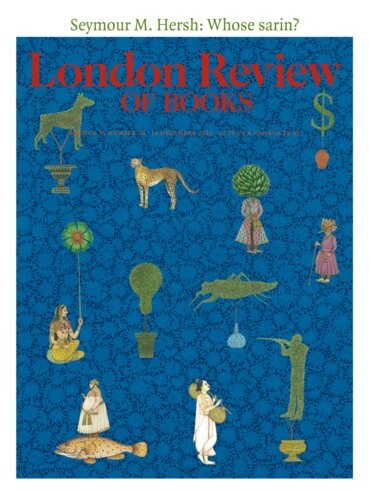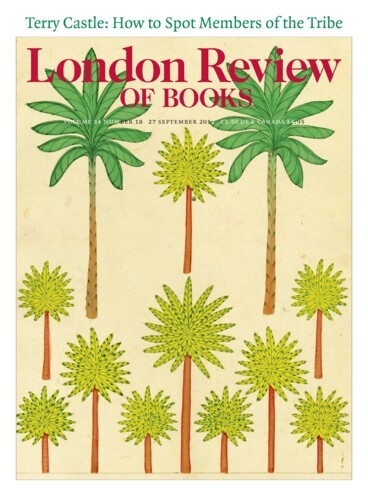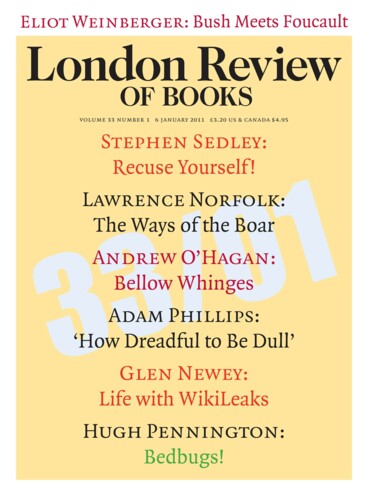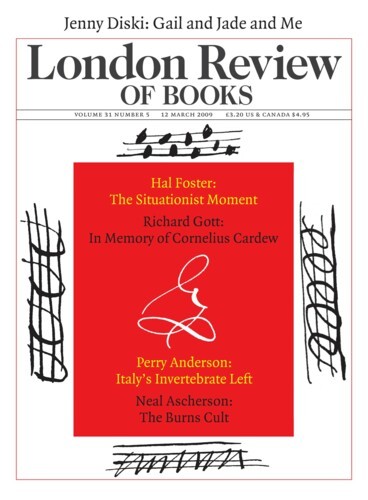Poem: ‘Pain’
David Harsent, 3 July 2014
Let’s say a gallery. Let’s say ill weather. Let’s say you’ve movedfrom L’Arbre de Fluides to La Fenêtre. Let’s say you’re not Marie,not one of the Corps de Dame. Let’s say you’ve been better loved.Let’s say that one of these, for sure, is what you came to see.
*
Red and black. Heart and hand. Sand and salt. You make a note.The...





